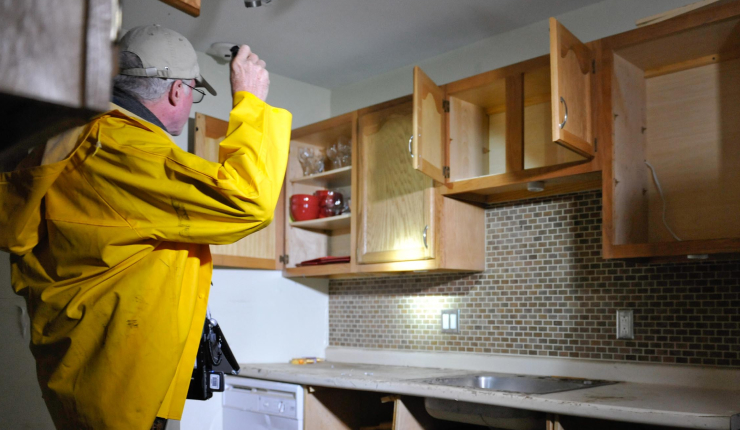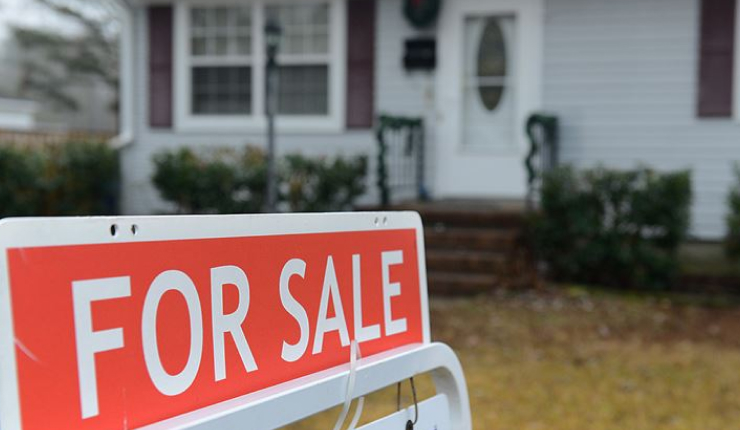Congratulations, it looks like your offer went through, but it’s not time to celebrate quite yet! Before you bring out the champagne and call all your friends, you need to get the house inspected. You’ll want to know the exact condition that the home is in before you make such an important financial decision. In this post, we’ll unveil the happenings behind a house inspection and give you tips to finding a professional inspector.
What is an inspection?
Having your house professionally inspected is a must when it comes to buying your first home. You wouldn’t want to purchase the home only to discover that it’s infested with mold or has hidden electrical issues, now would you?
After you’ve made your offer, filled out the purchase agreement, and the seller accepts it, the next step is the inspection. You should schedule an inspection within 3-5 days after you receive a copy of your purchase agreement. The intent behind an inspection is to give the house a nice once-over to identify the true condition of the property. A professional home inspector will perform a thorough investigation of the house, bringing to light any issues or causes for concern. Essentially, an inspection is a check-up on the home to make sure that is it ready, healthy, and safe for you to move into!
What happens during an inspection?

On average, a home inspection will last about 2-3 hours. During that time, the inspector will perform a careful review of the home’s structural, mechanical, and electrical elements. With a notebook and camera in hand, they’ll jot down any notes and snap pictures to document their findings. Mandated by the American Society of Home Inspectors, your inspector is to check out the following:
- Heating System
- Central Air Conditioning System
- Interior plumbing and electrical systems
- Roof
- Attic and visible insulation
- Walls
- Ceilings
- Floors
- Windows and doors
- Foundation
- Basement
Technically, you don’t have to be present for the inspection, but it may make you feel a little better. If you go to the inspection, you are able to walk through the house with the inspector and ask questions as they come up. If you are unable to make it, just be sure to ask questions when you receive your final report.
The importance of hiring a professional
While inspections usually cost anywhere from $200-400, hiring a professional inspector is completely worth it. Having the home inspected by someone who does this for a living means that you will get an honest and trustworthy report from an individual who is extremely knowledgeable in this area. Think of a home inspector as a doctor and the house as your child. Let’s be honest, you wouldn’t hire someone without proper training and certification to give a check-up to your baby. In the same way, it’s not wise to hire someone who has failed to meet the requirements to inspect your home. Professional home inspectors are certified and trained; not only do they know what to look for but they also know how their findings can affect the future of the house.
How to find an inspector
While it may be cheaper to hire Joe Schmo, the quality of the inspection decreases. So, don’t let the price scare you from hiring a professional who can save you money in the long run! Similar to how you interviewed buyer’s agents, the best way to find your home inspector is to interview them.

More than likely, your real estate agent has a list of professional inspectors to refer you to. If not, hop on over to the American Society of Home Inspectors website which provides you with a list of resources.
Here are some questions to base the interview off of:
- How long have you been in the business?
- What certification do you have?
- What’s the duration of the inspection?
- Can I be present at the time of the inspection?
- What do you include/exclude from the inspection?
Interviewing several different professional inspectors will help you see who will give you the most for your money. Interview a few before you decide on one!
Post-inspection
After your inspector completes the inspection they will draw up their findings in a report for you. Be sure to ask your inspector to go over this report with you so they can explain and help you fully grasp what they found. After you understand the report, it’s up to you to decide how you’re going to move forward.

If your inspector does land on something that is concerning to you, you may consider hiring a specialist to look into it further. Here are several examples of incidents in which you may decide to get a specialist’s opinion:
- Mold
- Termites
- Lead paint/piping
- Radon testing
If there are minor repairs you may contemplate doing them on your own. If the report shows major repairs, maybe you can negotiate the price a little bit. If you think the issues are too large-scale, maybe you’ll decide to cancel the agreement.
If the home was given a fairly clean bill of health and no considerable problems surfaced, you may decide to move forward. If so, it’s time to contact your lender and let them know that you’re ready to begin finalizing your loan!








